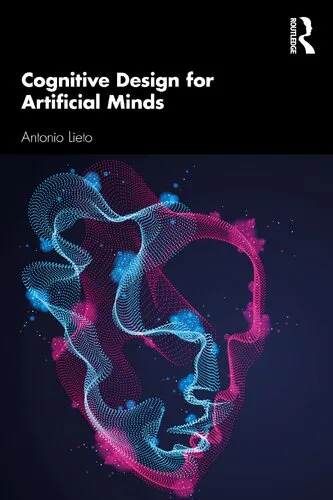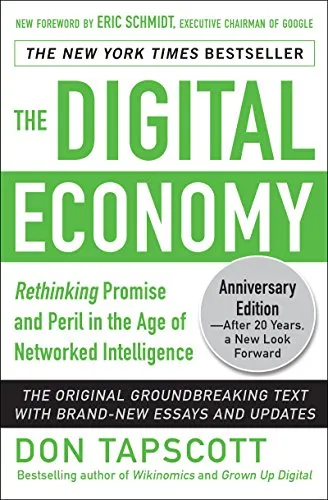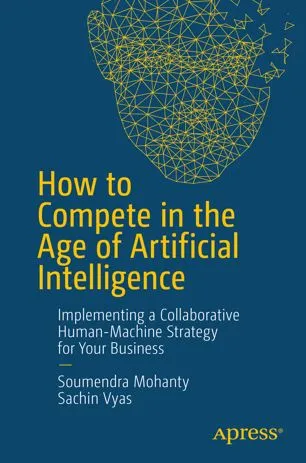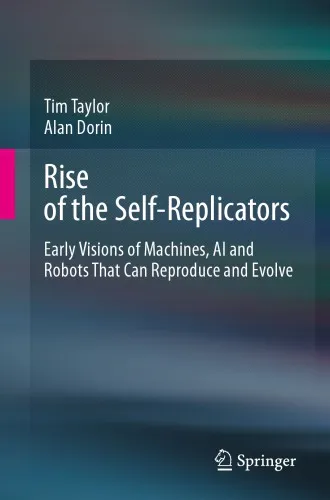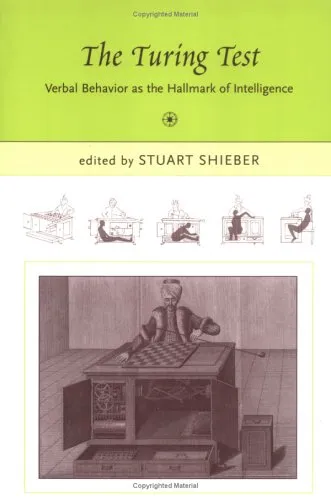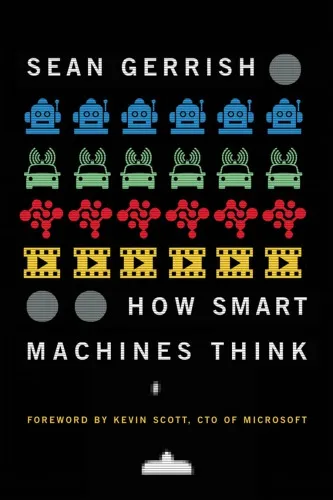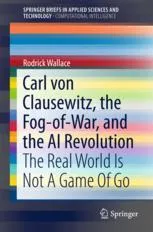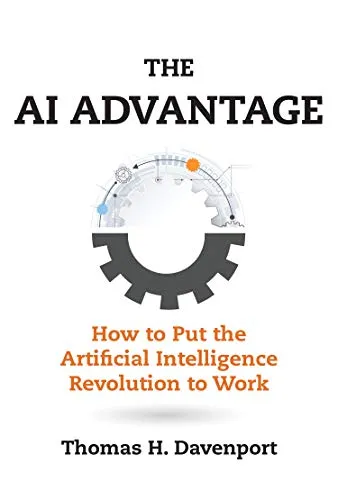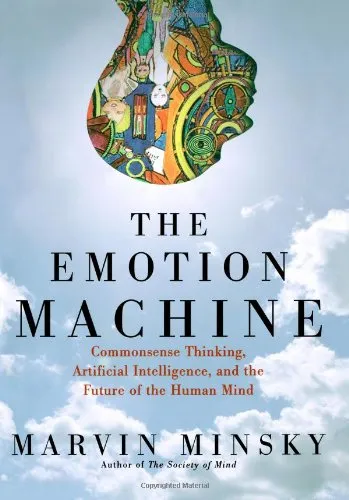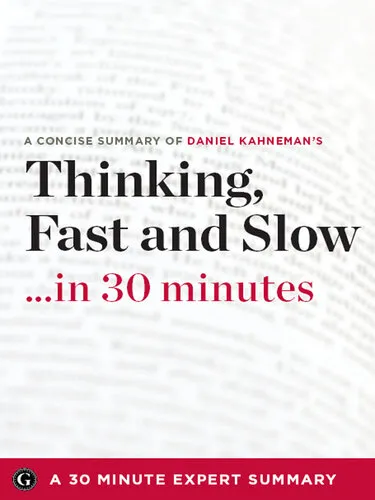Cognitive Design for Artificial Minds
4.8
بر اساس نظر کاربران

شما میتونید سوالاتتون در باره کتاب رو از هوش مصنوعیش بعد از ورود بپرسید
هر دانلود یا پرسش از هوش مصنوعی 2 امتیاز لازم دارد، برای بدست آوردن امتیاز رایگان، به صفحه ی راهنمای امتیازات سر بزنید و یک سری کار ارزشمند انجام بدینکتاب های مرتبط:
Persian Summary
معرفی کتاب 'Cognitive Design for Artificial Minds'
کتاب 'Cognitive Design for Artificial Minds' به نویسندگی آنتونیو لیتو، مسیری نوین در طراحی شناختی برای ساخت ذهنهای مصنوعی ترسیم میکند. با تمرکز بر طراحی سیستمهای هوشمند که قادر به پردازش و تفکر مشابه انسانها باشند، این کتاب ابزار و دیدگاههای جدیدی را ارائه میدهد که میتواند راهنمایی برای محققان و طراحان هوش مصنوعی باشد.
خلاصهای جامع از کتاب
در 'Cognitive Design for Artificial Minds'، آنتونیو لیتو تلاش میکند تا مبانی نظری و عملی طراحی شناختی را در زمینه هوش مصنوعی بررسی کند. او با استفاده از نظریههای میانرشتهای، از جمله علوم شناختی، علوم رایانه و روانشناسی، رویکردی جامع ارائه میدهد که بهبود تعامل انسان و ماشین را هدف قرارداده است. تمرکز اصلی کتاب بر طراحی سیستمهای هوشمند است که قادر به یادگیری، تصمیمگیری و تعامل با محیطهای پیچیده باشند. این کتاب به تحلیل قابلیتها و محدودیتهای موجود در سیستمهای AI فعلی پرداخته و پیشنهاداتی برای پیشبرد این حوزه ارائه میدهد.
نکات کلیدی
- تلفیق نظریههای میانرشتهای برای ارائه راهکارهای نوین در طراحی هوش مصنوعی.
- بررسی مفاهیم کلیدی مانند یادگیری، حافظه و تصمیمگیری در زمینه طراحی شناختی.
- تحلیل موانع فعلی در توسعه AI و پیشنهاد روشهای خلاقانه برای حل آنها.
- بررسی نقش تعامل انسان و ماشین و تأثیر آن بر طراحی سیستمهای پیچیده.
- پیشنهاد فریمورکهای جدید برای بهبود کارایی و تطبیقپذیری سیستمهای هوشمند.
نقلقولهای معروف از کتاب
«درک شناخت انسانها نه تنها کلید پیشرفت AI است، بلکه راهنمایی برای ساخت ماشینهایی است که در تعامل با ما به طور طبیعیتر و مؤثرتر عمل کنند.»
«طراحی شناختی چیزی بیش از کد زدن الگوریتمها است؛ این هنر درنظر گرفتن پیچیدگیهای انسانی در توسعه فناوری است.»
چرا این کتاب مهم است؟
کتاب 'Cognitive Design for Artificial Minds' به دلایل متعددی ارزشمند است. ابتدا، این کتاب به پر کردن خلاهای موجود در طراحی سنتی AI میپردازد و به تعامل طبیعیتر بین انسان و ماشین اشاره میکند. دوم، از طریق ترکیب مباحث میانرشتهای، ارائهدهندهی یک چشمانداز جامع و در عین حال کاربردی برای دانشجویان، محققان و علاقهمندان به این حوزه است. در نهایت، با ارائهی چالشها و فرصتهایی که در مسیر طراحی شناختی وجود دارد، این کتاب زمینهساز نوآوریهای بیشتر در آینده خواهد بود. در مجموع، این اثر به عنوان یک نقطه عطف در تحول سیستمهای هوشمند و توسعه AI در نظر گرفته میشود.
Welcome to 'Cognitive Design for Artificial Minds', a pioneering work that brings you to the fascinating intersection of cognitive science and artificial intelligence. This book provides an in-depth exploration of how principles of cognitive design can enhance the creation of artificial minds, offering fresh insights and innovative strategies for researchers, practitioners, and enthusiasts alike.
Detailed Summary of the Book
The journey through 'Cognitive Design for Artificial Minds' begins with an examination of foundational theories in both cognitive science and artificial intelligence. By bridging these domains, the book introduces a new paradigm in designing AI systems that are inspired by human cognitive processes. It delves into the architecture of the human mind to identify which cognitive functions can be mimicked or adapted in artificial systems.
Progressing through the chapters, you will encounter discussions on cognitive architectures, models of reasoning, learning, and problem-solving strategies that AI can leverage. A significant focus is placed on the importance of flexible and adaptive design, ensuring that artificial minds not only possess raw computational power but also the nuanced capabilities for handling ambiguity, learning from experience, and interacting within dynamic environments.
The text also covers practical applications, demonstrating how cognitive design principles can be employed in robotics, natural language processing, decision-making systems, and beyond. The strategic use of case studies and theoretical insights helps to solidify how cognitive design enhances functionality and user interaction in real-world scenarios.
Key Takeaways
- Understanding the core principles of cognitive science that can be transposed into AI design.
- Learning about cognitive architectures and their application in developing adaptable AI systems.
- Strategies for creating AI that can handle complex, real-world tasks with human-like proficiency.
- The importance of flexible and user-oriented design in AI to improve its overall effectiveness and applicability.
- Insights into the future landscape of cognitive AI development and its potential societal impacts.
Famous Quotes from the Book
"The real challenge in creating artificial minds lies not in replicating the human mind's calculations, but in capturing its immense ability to navigate an unpredictable world."
"Cognitive design in AI is not about building machines that think like humans, but about creating systems that can complement human thinking."
Why This Book Matters
This book is pivotal in the ongoing dialogue about the ethical and practical development of AI technologies. In a world where artificial intelligence is rapidly transforming industries and societies, understanding its relationship with human cognition becomes critical. 'Cognitive Design for Artificial Minds' not only provides the theoretical frameworks necessary for this understanding but also offers actionable methodologies for implementing these frameworks in tangible AI advancements.
The insights presented in this book are not just of academic interest; they have profound implications for policymakers, developers, and technologists who are crafting the future of intelligent systems. By adhering to cognitive design principles, the next generation of AI could be more intuitive, equitable, and aligned with human values, addressing challenges before they arise and enhancing our capabilities in harmony with machines.
In conclusion, 'Cognitive Design for Artificial Minds' is a cornerstone text for anyone involved in the cognitive sciences, AI, or robotics sectors. Its forward-thinking approach and rich, interdisciplinary perspective offer readers the tools and knowledge necessary to contribute to a future where artificial minds can seamlessly integrate and augment human potential.
دانلود رایگان مستقیم
شما میتونید سوالاتتون در باره کتاب رو از هوش مصنوعیش بعد از ورود بپرسید
دسترسی به کتابها از طریق پلتفرمهای قانونی و کتابخانههای عمومی نه تنها از حقوق نویسندگان و ناشران حمایت میکند، بلکه به پایداری فرهنگ کتابخوانی نیز کمک میرساند. پیش از دانلود، لحظهای به بررسی این گزینهها فکر کنید.
این کتاب رو در پلتفرم های دیگه ببینید
WorldCat به شما کمک میکنه تا کتاب ها رو در کتابخانه های سراسر دنیا پیدا کنید
امتیازها، نظرات تخصصی و صحبت ها درباره کتاب را در Goodreads ببینید
کتابهای کمیاب یا دست دوم را در AbeBooks پیدا کنید و بخرید
1563
بازدید4.8
امتیاز0
نظر98%
رضایتنظرات:
4.8
بر اساس 0 نظر کاربران
Questions & Answers
Ask questions about this book or help others by answering
No questions yet. Be the first to ask!
